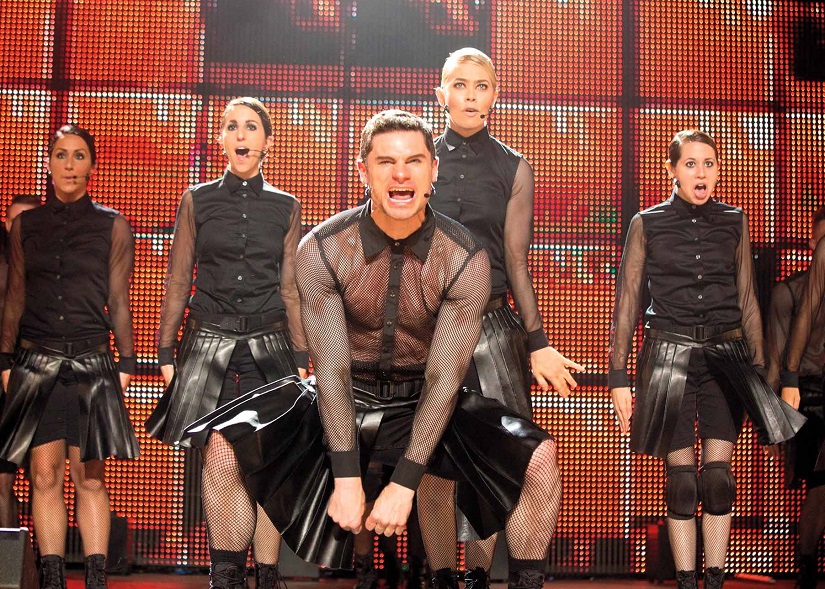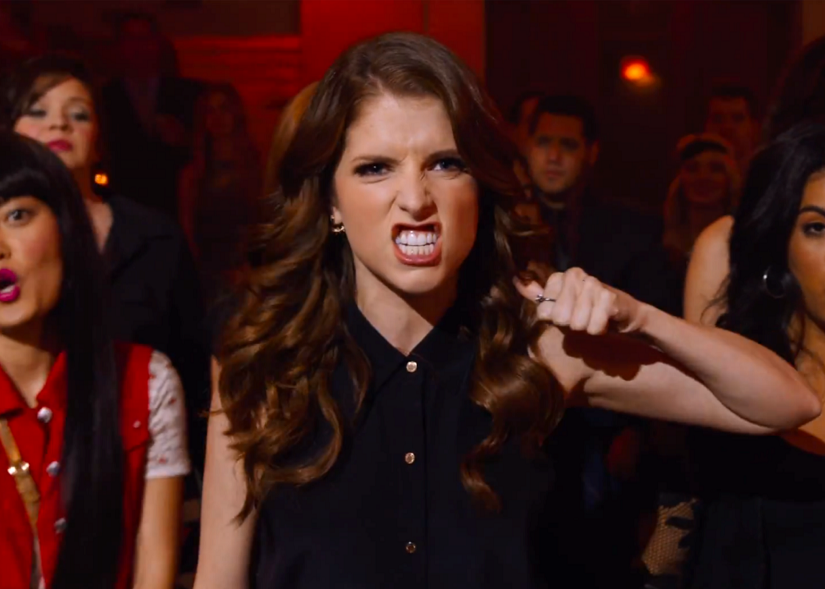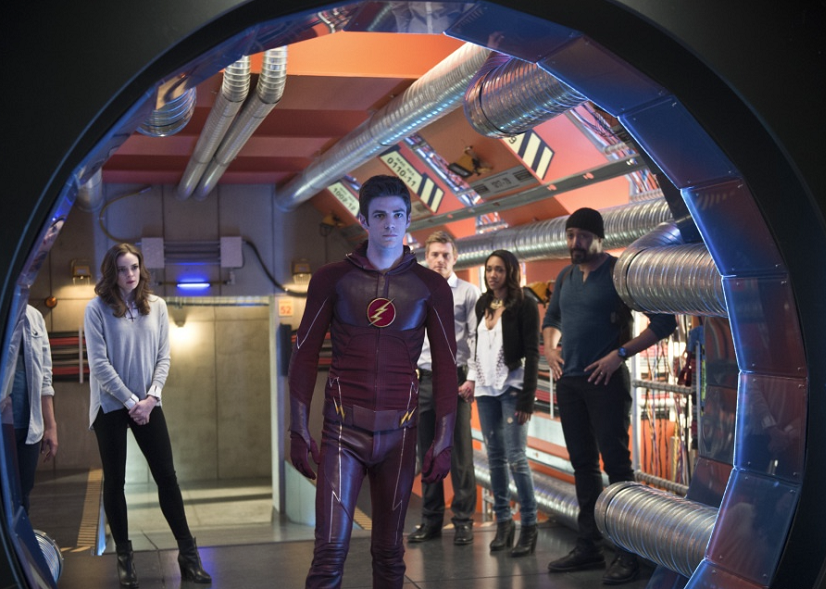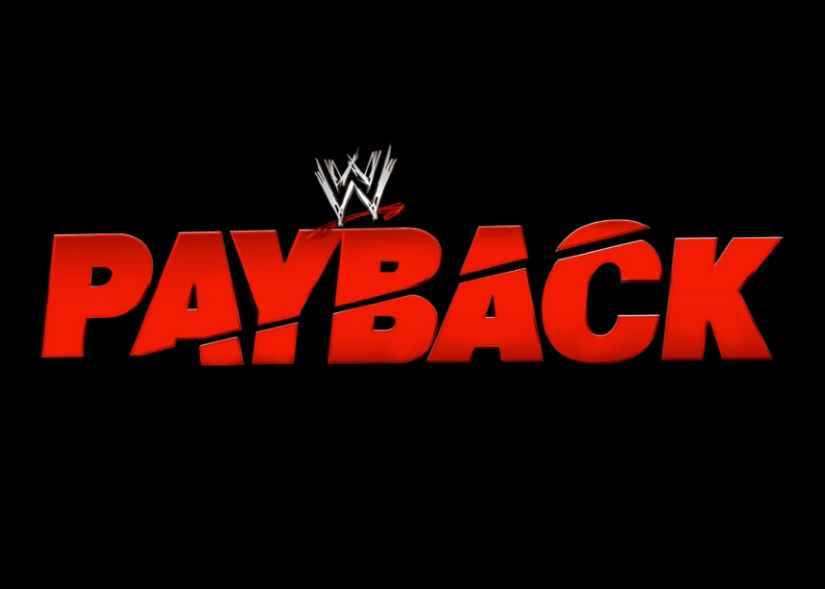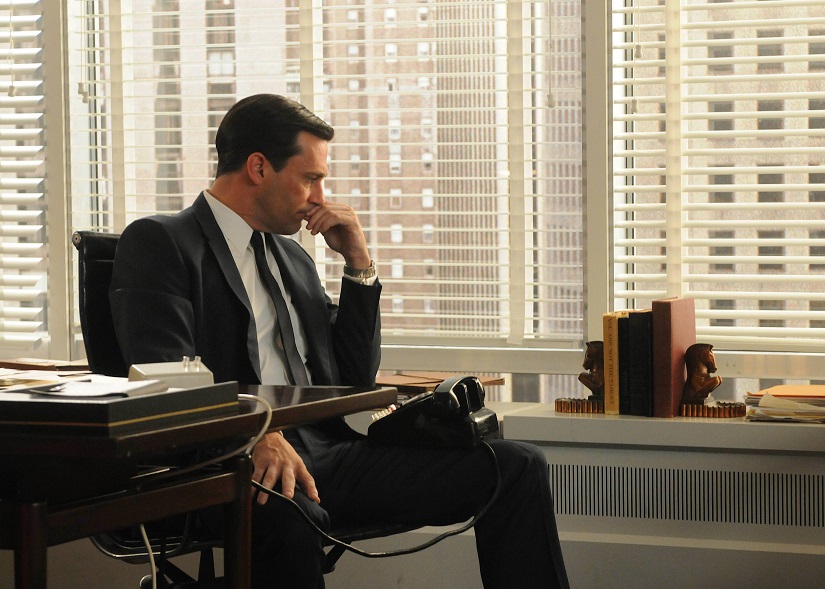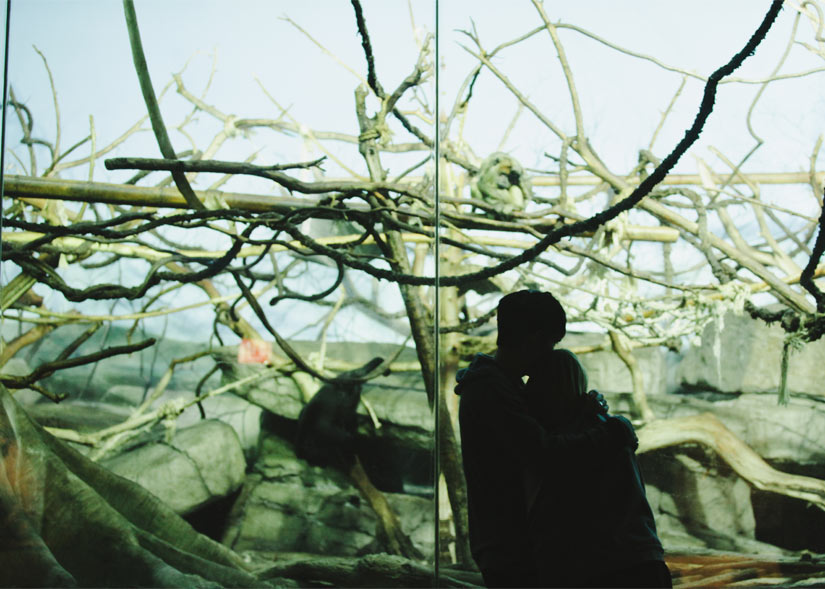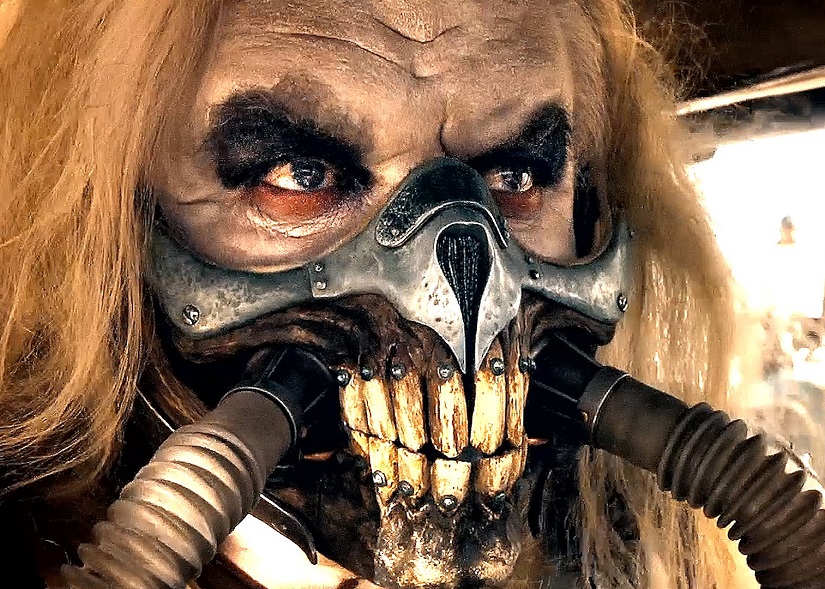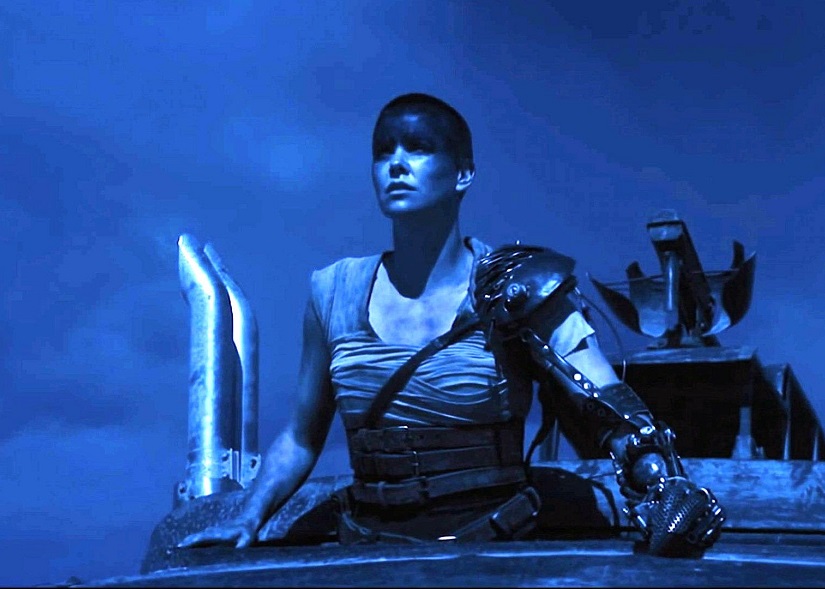[Review] Pitch Perfect 2
There's a natural sense of trepidation when a sequel comes around to a small, unheralded movie which turned into an unexpected hit, as was the case for Pitch Perfect. The original may have been a barely disguised riff on Glee, aiming to latch onto the coattails of the series' popularity, but an excellent cast, slyly sympathetic characters and a surprisingly edgy line in humour combined to form its own version of the victorious underdog story. The difficulty in producing sequels to such movies is not only that the element of surprise is gone, but the need to raise the stakes over its predecessor can often lead to the small, personal charms which gave the original its identity being overlooked.
Pitch Perfect 2 doesn't escape that curse, but the first movie's delights are strong enough that the many elements which are carried over wholesale, whilst never as funny or fresh as the first time around, nevertheless make it far from A Ca-tastrophe. What, you didn't think you were going to get through a Pitch Perfect review without some A Cappella puns, did you? I'm afraid that much is positively A Ca-demic.
OK, that'll do.
[youtube id="uC0cBktoD-Q"]
Pitch Perfect 2
Director: Elizabeth Banks
Rating: PG-13
Release Date: May 15th, 2015
Pitch Perfect 2 follows all the sequel tropes to the letter, which means that having won the Nationals, the Bellas must now move onto the World Championships, facing off against the requisite superpowered Eurotrash villains, who go by the amusingly idiotic name of Das Sound Machine (DSM) - did no-one on the writing staff know even a second word of German? The stakes are also higher, with the Bellas in danger of being suspended from collegiate competitions following a wardrobe malfunction in front of a stock-footaged President Obama. None of it makes much sense (should the Bellas care about collegiate suspension when already competing globally? The movie doesn't investigate) but while that's not much of a problem in and of itself, because no-one in their right mind sits through an A Cappella movie expecting to be riveted by plot, it is representative of a rushed, slightly underdeveloped feeling that permeates much of the movie.
The original may have been as formulaic and straightforward as it goes, but worked that simplicity to its advantage by layering pathos and fun into the surrounding details. This time around, the central plotline remains unashamedly locked to formula but is bogged down by superfluous subplots that inform character only on the most superficial level and feature little meaningful interaction with the story we're here to see. Beca trying to use an internship at a record label to put in place the building blocks of a producing career, and her fears of not being good enough, is a fine idea, but adds no extra conflict or complication, barring a small amount of rapidly dismissed angst, to the Bellas' path to global domination. The same goes for a character-undermining romance for Fat Amy, whose appeal is rooted in her free-spirited independence. Neither offers anywhere near the required number of laughs or worthwhile performances to justify the time they steal away from the main plot.
The Championships plot is itself a bit of a mess, jam-packed with montages and pacing issues which means the event itself is compressed into a tiny amount of screentime. Were it not stated beforehand, you'd only know the finals take place in Copenhagen, for instance, thanks to one establishing scene barely lasting a minute. The number of tangents and diversions the Bellas go through never feel like anything less than padding, but are at least mostly enjoyable. A pre-Championships competition at a country club owned by David Cross doesn't serve any purpose, but brings in a handful of enjoyable music numbers as a like-for-like, if less character-driven, replacement for the first movie's riff-off. The boot camp later attended by the Bellas to rediscover themselves in light of the seemingly insurmountable competition of DSM also feels more like an excuse for the cast to have a fun few weeks messing around at a forest resort, but leads to a sweet bonding scene for the girls around a bonfire and brings out an unexpectedly affecting refrain for Anna Kendrick's 'Cups' song.
The relationship between the girls is the glue which holds the movie together, this time focusing on how each of them has been changed by the friendships formed in the group, continuing a long tradition of Bellas finding strength in each other. Newcomer Emily, daughter of a former Bella (played by Katey Sagal, whose lack of screentime and singing opportunities is verging on the disgraceful) effectively takes the role of second lead and is played with great warmth by Hailee Steinfeld. With a second Pitch Perfect sequel already on the cards, it wouldn't be a surprise to see Steinfeld take over as leader of the group from Beca, played by Anna Kendrick in a performance which feels like her first phone-in. The famous awkward Kendrick charm is all there, but on auto-pilot. Whether that's down to disengagement on her part or simply weaker material remains to be seen, because Rebel Wilson too struggles to hit the same blunderbuss highs as in her first run as Amy.
The movie is amusing throughout, but not as consistently laugh out loud as its predecessor. Part of this is down to more lines falling flat, with such potentially strong running gags as Beca's inability to come up with any solid burns against the physically flawless DSM members never achieving the laughs they should. The first movie's fondness for its characters' quirks is also replaced by what at times skirts perilously close to a mean streak. There's nothing wrong with indulging in ironic stereotypical humour, as the original did with aplomb, but here it too often feels as though the movie is falling back on it due to a lack of anything wittier. Newcomer Florencia (Chrissie Fit) adopts the same line in disruptive non-sequiturs about strange foreign customs as was previously stock in trade for Lilly (Hana Mae Lee), who is subsequently given less material. John Michael Higgins and Elizabeth Banks as Christopher Guest-esque oddball commentators once again provide some of the biggest laughs, but their interactions are more locked into a repeated format (he exuberantly delivers a sexist quip, she offhandedly cuts him down for it) than was the case first time around.
Banks also moves into the director's chair, having served as executive producer first time around, and her inexperience manifests in an infuriating refusal to let the performances and visuals work for themselves. The movie's rhythm is savaged with incessant camera movement and quick cutting, somehow squeezing two especially obnoxious cuts into an early shot of the Bellas walking across the Barden University campus. It settles as the movie progresses, but remains intrusive during the big numbers and flat everywhere else. Despite these complaints, the movie's affection for its characters, a set of catchy performances and the inherently likeable silliness of a world where A Cappella cheesiness is treated with life-and-death importance - the Eurovision Song Contest gone global, and slightly less hilarious - carries it over the line even if the ride is decidedly bumpier than first time around. There's nothing as memorable as vomit angels, Beca going into an impromptu rap or getting caught short in the shower (or a line as unintentionally funny as "You know David Guetta?"), but it should prove no less easily rewatchable. Even if this second performance is noticeably less finely tuned, it hits the right notes often enough to earn a passing grade.
[This Week In TV] The Flash; Supergirl; Late Show With David Letterman
This Week in TV is a weekly feature reviewing the best, worst and most interesting episodes of television from the past seven days. The plan is to cover a wide variety of shows, but not always the same ones each week, so let us know in the comments which ones you’d particularly like to read about. This week sees Barry Allen travel back in time to save his mother in the Flash finale; our review of CBS' leaked Supergirl pilot; and David Letterman's final appearance as host of the Late Show.
[Review] Pet Symmetry: "Pet Hounds"
The Chicago three-piece of Pet Symmetry have their music slightly more under-the-radar than their folk-punk, punk rock counterparts, but with their newest release of their first full-length, Pet Hounds, that will likely change. With their comical puns (get it, Pet Hounds? The Beach Boys' Pet Sounds... you get it) and lengthy track names, it's apparent the group are in it for the fun of things. Yet, the members of still active bands such as Kittyhawk, Into It. Over It. and Dowsing have shed their former selves for the debut record of Pet Symmetry; even for only a moment (Into It. Over It. is already out on tour for 2015).
Starting off with the opening track “My Exhausted Month (of May)” sets the precedent for the rest of the album: an emo-revival structure (if emo ever left, that is) with a punk rock roof and a pop punk floorboard. Together, Pet Symmetry have a place to showcase their talents and their ability to reach out to more than one genre in the scene; Pet Hounds fits comfortably in anyone’s record collection.
[iframe id="https://bandcamp.com/EmbeddedPlayer/album=2026024931/size=large/bgcol=333333/linkcol=ffffff/tracklist=false/artwork=small/transparent=true/"]
The single “Give Thanks (Get Lost)” is a perfect blend of heavy melody, clean vocals and guitars that don’t muddle with the lyric prowess of the song. Like a punk tribute to any Green Album song from Weezer, “Give Thanks (Get Lost)” is flawless. “Go Outside (Stare At The Sun)” is reminiscent of bands similar to Pet Symmetry (e.g. other bands on Asian Man Records like Joyce Manor, Antarctigo Vespucci, etc). “Class Action Force (Useless Tools)” brings punk highlights back to Pet Hounds and showcases the go-to of pop punk (e.g. lyrics about sad boys walking around the park), but in a mature state of affairs. “Gone, Gone, Gone (Even Further Gone)” is a ballad-worthy parting song on the record before the outro and longest track, “Salad Daze (Seein’ Cred).” A play on words of Minor Threat’s popular song, “Seein’ Red,” the track is very shoegaze-y and has a Death Cab for Cutie vibe with heavier guitar breaks.
A solid record, I advise anyone who enjoys punk, pop punk, emo or folk punk to pick this album up. It’s unclear if the group will be going on tour anytime soon (other than fests), but when they do, go see them. This is a side project I hope to see turn into much more. With less than 7,000 fans on Facebook (and more than 50,000 for their more notable bands), Pet Hounds should add to the band’s low hype, as it is much deserved.
WWE Payback 2015: Results and Match Reviews
A day later than intended, but we're doing it—we're looking at WWE Payback 2015, AKA a decent but forgettable episode of Monday Night Raw or Smackdown. This didn't even feel like a $9.99 network commitment. Payback 2015 should have come with your basic cable package, and woe to anyone who shelled out the coin to buy this on actual pay per view.
Yes, Payback is the latest in a string of inconsequential pay per views on the road to SummerSlam, which may explain why the entire event was lackluster overall. The thin roster, repeated matches, and lack of decent storylines means that everyone was wrestling tonight for everyone's favorite reason: because wrestling.
The two bright spots in all this: The New Day and the Spanish announce table es muy fuerte!
Let's go through this flimsy card and hope for something better when Elimination Chamber closes out May and Money in the Bank starts to make the next few months interesting.
But for now, Payback 2015.
[This Week In TV] Mad Men; Arrow; Wayward Pines
This Week in TV is a weekly feature reviewing the best, worst and most interesting episodes of television from the past seven days. The plan is to cover a wide variety of shows, but not always the same ones each week, so let us know in the comments which ones you’d particularly like to read about. This week sees Don Draper and Oliver Queen find themselves just in time for the Mad Men series finale and the final episode of Arrow's third season respectively, while Wayward Pines gets underway with the closest thing we're likely to get to an M. Night Shyamalan return to form.
[Review] ANIMALS
[This review was originally posted as part of our SXSW 2014 coverage. It is being reposted to coincide with the film's wide release.]
[youtube id="ApqHI23JJHw"]
ANIMALS
Director: Collin Schiffli
Rating: N/A
Release Date: March 9, 2014 (SXSW), May 15, 2015 (Theaters/VOD)
There have been many films about addictions in the past. For most, the first that comes to mind is Darren Aronofsky's Requiem for a Dream, a dark, sometimes satirical look at the consequences of various forms of addiction. In a way, what helped make Reqiuem such a great film was how digestible the film was due to some of its outlandish, sometimes satirical tone. Sure, it was a dark and gruesome film, but it was somewhat sensationalized and over-exaggerated at times that helped hide or shield some of the more serious moments.
In ANIMALS, addictions are once again front and center, but they shape and characterize the love story between the film's two leads, Jude (David Dastmalchian) and Bobbie (Kim Shaw). The couple is homeless, living out of a car parked right outside of Chicago's Lincoln Park Zoo, as they spend their days running elaborate cons to fuel their opiate addictions. As their options for low risk cons begin to run dry, Jude and Bobbie must turn to shadier jobs to supplement their growing addictions that cause friction in the couple's relationship.
Throughout the film, there's a foreboding sense of despair swirling around Jude and Bobbie, as is often the case within films similar to ANIMALS. However, the manner in which it manifests isn't something inherently dark, unlike the fall in the aforementioned Requiem for a Dream, but something that fits within the context of the film. That's not to say the drama or suspense is suspended; rather, it's understated and kept grounded in a way that makes it feel more realistic and natural.
ANIMALS is loosely based on Dastmalchian's personal struggle with opiate addiction years ago, so the intimacy and reality of the situation is derived from an honest place that doesn't sensationalize any aspect of addiction, something I feel most other drug films do. ANIMALS might not find wide distribution, so if you get the chance to catch it at an indie or small run theater, I highly recommend catching it.
[Review] Mad Max: Fury Road
Thirty years have passed since director George Miller's last visit to the dystopian future of his most famous creation, Mad Max. Since then, he's preoccupied himself with such family fare as two Happy Feet movies and a Babe sequel, having struggled to get this third Max sequel off the ground since 1998. Fury Road suggests the long wait left him with one hell of a madness build-up to get out of his system.
Loud, plotless and visually jaw-dropping, Fury Road is a heavy metal spiritual successor to the punk western stylings of its three predecessors. It's a comic book movie without a comic book, a cacophonous symphony which rejoices in the deceptive precision of its orchestrated hell-raising. At a time when many action directors attempt to hide the increasingly overfamiliar of their destructive set-pieces behind manic, incoherent shooting, Miller conducts his extended suites with a hand that grows ever more intricate as the turmoil intensifies, guiding his audience from note to note with absolute assurance and clarity.
[youtube id="woHTUsl66BY"]
Mad Max: Fury Road
Director: George Miller
Rating: R
Release Date: May 14th, 2015
Fury Road suits its title well: for all the anger and havoc unfolding on-screen, Miller ensures the audience always knows where they are going and where they have come from. It is not a movie which particularly embraces the idea of cause and effect, with its action beats tending to occur as short and punchy individual passages rather than piling on top of each other, but within those beats, the mechanics and geography of each scene are laid out and adhered to with the certainty required for each movement to flow effortlessly into the next, earning enough trust that any lapses are easy to fill through imagination and previously acquired information.
If I'm labouring the point, it's because Fury Road represents everything the Michael Bay-inspired modern action movie aspires to, but with all the finesse those movies so desperate need and lack. Bay himself, as the originator of his style, has a reasonable grasp of georgraphy but an inability to restrain his perpetually ejaculating camera long enough to bring the audience in on the bliss of the climax. Far worse are his imitators, who offer only empty bragaddocio before limp disappointment at the main event. Miller understands the importance of the tease and the ecstatic delight of carefully controlled rhythm. The dangers of frustrating repetition are high in a two-hour chase movie, yet Miller knows when to hold back and give his audience time to recharge and discover pleasures easily overlooked in the rush, before kicking the engine back into life and starting all over again.
It's in those secret pleasures where Fury Road is arguably at its most compelling. The vehicular carnage that makes up the bulk of the action offers giddy, head-banging highs unlike any movie in a long time, but the context provided by the subtly suggestive world building is what really makes it sing. Again like his action, Miller's dystopia is rabidly anarchic, yet built on immediately comprehensible power structures. There's no need for the movie to go into such depth on the intricacies of the quasi-religious mythology Immortan Joe (a fearsome Hugh Keays-Byrne) uses to control his war boys, yet with only a few lines of dialogue and off-hand visual suggestions, each detail makes the world more lived-in and tangible, deeping the credibility and stakes of the otherwise thin central plotline.
That's not to say there aren't missteps. Despite the movie's title, Theron's gloriously named Imperator Furiosa is its dramatic centre of gravity, reducing Max to little more than a passenger in his own movie. Furiosa is a commanding and exciting lead, helped by a mesmerisingly gladiatorial performance from Theron, but dominates the movie to such an extent that everything which doesn't involve her - Max's PTSD, for instance - feels aimless, even with her story ultimately little more than a journey from point A to B. As a character, she's complex, moral and focused, with a stated goal and means of achieving it, where Max is a mumbling wanderer who happens to land by her side to lend a hand. It's obvious whose story Miller is more interested in telling - a mooted sequel, unsurprisingly, has been named Mad Max: Furiosa - but there's some dissonance between the audience largely experiencing Furiosa's story from the point-of-view of Max, a character of such secondary presence as to sometimes feel mandated to fit the movie part into an established series.
Max is salvaged by another rich performance from Hardy, who bears no physical resemblance to Mel Gibson and whose character is tangentially connected at best. The ravages of his internal torment at the family he was unable to save play out not only in the slightly ham-fisted visions which afflict him at every turn, but the contrast Hardy puts between the softness of his mumbled, barely audible voice and the twitchy tinderbox of his violent instincts. Hardy's training as Bane in using his face to convey depths of conviction and emotional vulnerability is put to potent use here: note the scene in which he witnesses, for the first time, the five girls Furiosa is smuggling away from their lives of sexual servitude at Immortan Joe's grotesque hands. The sight of their beauty amid the hellish, arid landscape of his life leaves Max confused, aroused and angered, a complex and historied conflict which Hardy plays out in a few seconds on his furrowed, awe-struck face.
Nicholas Hoult also brings considerable soul to warboy Nux, who finds himself broken off from the clan which gave his life purpose and having to navigate a more complex world than he ever imagined. Like Max, he exists in the shadow of Theron's imperious Furiosa and despite Hoult's best efforts, and a sweet if underdeveloped affection with one of the girls, the character doesn't add much to proceedings beyond comic relief and being an agent for Miller's world-building. That's not a bad thing when so much of the movie's depth comes from its world, but the barebones framework of the plot running through it leads to a handful of problems once Furiosa's story has been told, with nowhere to go but back on itself to facilitate an unconvincingly pat narrative conclusion. But then again, as the old cliché goes, what matters is the journey rather than the destination, and Fury Road provides one hell of a ride getting there.
[Review] Melt-Banana: "Return of 13 Hedgehogs"
When you're an independent punk-ish band that's been around for 20+ years, a long catalog of splits and singles are amassed over time... especially when a lot of your early catalog features songs that clocked in at an average of 90 seconds. Over their long career, Melt-Banana has entranced (and confused) many an ear, and ahead of their upcoming, two-part North American tour comes their second compilation album, Return of 13 Hedgehogs. Amassed from non-album singles and splits recorded/released from 2000 - 2009, Return of 13 Hedgehogs serves as a fitting swan song to the band's illustrious past.
As alluded to, Return of 13 Hedgehogs is Melt-Banana's sophomore compilation album with the name derived from the band's penchant of calling their singles "hedgehogs." The singles were recorded during a decade in which the band went from a lo-fi grindcore style (Teeny Shiny) to their first foray into a hi-fi, increasingly techno/pop sound (Cell-Scape) to a near-complete transition to their style of pop (Bambi's Dilemma) to the band's unofficial live debut as a duo experimenting with synthesizers and samples (Melt-Banana Lite Live Ver 0.0). As can be imagined, Return of 13 Hedgehogs reflects all of these stylistic changes across the album's 29 songs. What's more interesting are the band's songs that were featured on splits with other bands of varying styles ranging from the ska-punk style of Big D and the Kids Table to notable noisecore band The Locust, to name just a couple.
Melt-Banana is a very unique band, and this couldn't be expressed more clearly than by some of the covers they recorded, such as a tantalizing take on Italian singer Mina's "Tantarella Di Luna," ska standard "Monkey Man" by Toots and the Maytals, goth punk The Damned's "Love Song," and Devo's "Uncontrollable Urge." If 2013's fetch represents Melt-Banana's future, Return of 13 Hedgehogs is the perfect bookend to their past.


